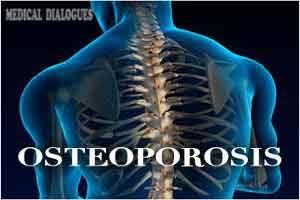- Home
- Editorial
- News
- Practice Guidelines
- Anesthesiology Guidelines
- Cancer Guidelines
- Cardiac Sciences Guidelines
- Critical Care Guidelines
- Dentistry Guidelines
- Dermatology Guidelines
- Diabetes and Endo Guidelines
- Diagnostics Guidelines
- ENT Guidelines
- Featured Practice Guidelines
- Gastroenterology Guidelines
- Geriatrics Guidelines
- Medicine Guidelines
- Nephrology Guidelines
- Neurosciences Guidelines
- Obs and Gynae Guidelines
- Ophthalmology Guidelines
- Orthopaedics Guidelines
- Paediatrics Guidelines
- Psychiatry Guidelines
- Pulmonology Guidelines
- Radiology Guidelines
- Surgery Guidelines
- Urology Guidelines
How a Mediterranean diet could reduce osteoporosis

People with osteoporosis should consume a Mediterranean-type diet as it helps in reducing bone loss, according to a study published in the American Journal of Clinical Nutrition. As per the findings of the study, following a diet rich in fruit, vegetables, nuts, unrefined cereals, olive oil, and fish can reduce hip bone loss just within 12 months. The study is the first long-term pan-European clinical trial analyzing the impact of a Mediterranean diet on bone health in older adults.
The study included 1142 people aged between 65 years and above. The participants were randomized into two groups in which one group followed a Mediterranean diet and a control group did not.
Those following the Mediterranean diet increased their intake of fruits, vegetables, nuts, unrefined cereals, olive oil, and fish, consumed small quantities of dairy products and meat and had a moderate alcohol intake.
People in the intervention group were provided with foods such as olive oil and wholemeal pasta, to encourage them to stick to the diet, and were also given a small vitamin D supplement, to even out the effects of different levels of sunlight on vitamin D status between the participating countries.
To check for circulating biomarkers, blood samples were taken at the start and end of the trial. Bone density was measured in over 600 participants across both groups at the lumbar spine and femoral neck.
The study found that people with osteoporosis following the diet saw an equivalent increase in bone density in one part of the body - the femoral neck which is the area which connects the shaft of the thigh bone to its rounded head, which fits in the hip joint whereas the people in the control group had their usual age-related decrease in bone density. The study revealed that consumption of Mediterranean Diet with 10 µg vitamin D3/d reduced the rate of femoral neck bone loss, but not the total body or spinal bone marrow density(BMD) loss.
Read Also: Probiotics prevent age‐associated bone loss and osteoporosis-Study
"This is a particularly sensitive area for osteoporosis as loss of bone in the femoral neck is often the cause of hip fracture, which is common in elderly people with osteoporosis,” said Prof Susan Fairweather, the lead author of the study. He added,"Bone takes a long time to form, so the 12-month trial, although one of the longest to date, was still a relatively short time frame to show an impact. So the fact we were able to see a marked difference between the groups even in just this one area is significant."
"A Mediterranean diet is already proven to have other health benefits, reducing the risk of cardiovascular disease, Parkinson's, Alzheimer's and cancer, so there's no downside to adopting such a diet, whether you have osteoporosis or not,” said Prof. Fairweather-Tait.
The study concluded that a Mediterranean-like diet together with vitamin D3 supplements (10 µg/d) had no effect on BMD in elderly people with osteoporosis but there was a statistically significant reduction in the rate of loss of bone at the femoral neck.
For reference log on to https://doi.org/10.1093/ajcn/nqy122

Disclaimer: This site is primarily intended for healthcare professionals. Any content/information on this website does not replace the advice of medical and/or health professionals and should not be construed as medical/diagnostic advice/endorsement or prescription. Use of this site is subject to our terms of use, privacy policy, advertisement policy. © 2020 Minerva Medical Treatment Pvt Ltd